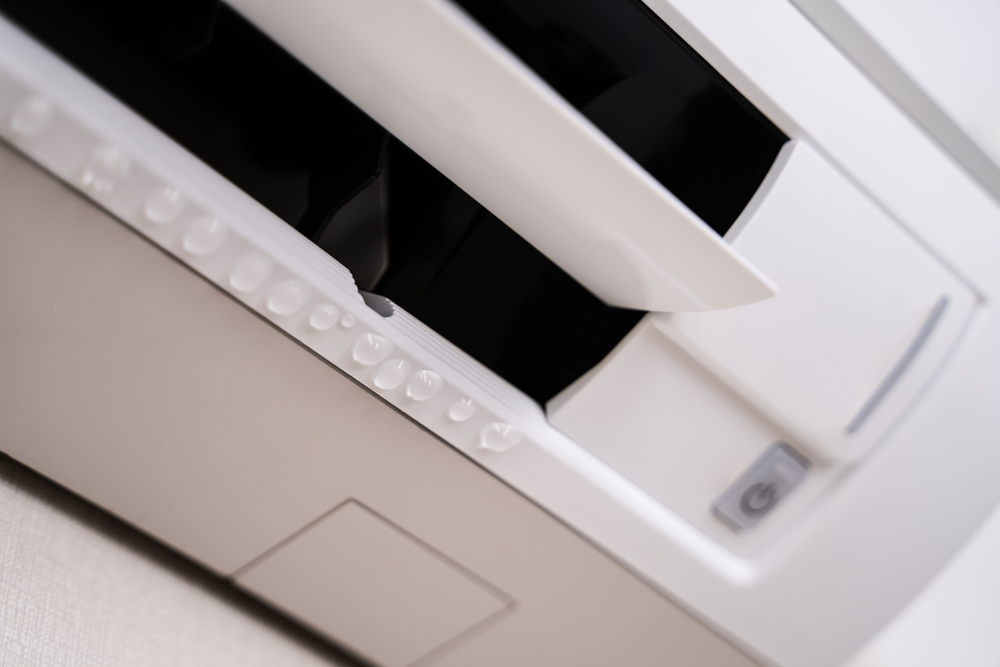How Humidity Affects Your Air Conditioner

Humidity plays a significant role in the performance and efficiency of your air conditioner (AC). Understanding how humidity impacts your AC can help you maintain comfort and optimize energy usage in your home.
The Relationship Between Humidity and Air Conditioning
Humidity refers to the amount of moisture present in the air. In areas with high humidity, the air is more saturated with water vapor, making it feel warmer than it actually is. Air conditioners are designed not only to cool the air but also to remove excess humidity, creating a more comfortable indoor environment.
Impact on Cooling Efficiency
One of the primary functions of an air conditioner is to cool the air by removing heat. When humidity levels are high, the air feels stickier and warmer. This makes the cooling process more challenging for the AC unit because it has to work harder to achieve the desired temperature. As a result, the cooling efficiency of the AC decreases, leading to longer running times and higher energy consumption.
Increased Energy Consumption
High humidity levels can cause your air conditioner to consume more energy. As the AC works harder to lower the temperature and remove moisture from the air, it uses more electricity. This can lead to higher utility bills, especially during the summer months when humidity levels tend to be elevated.
Strain on the AC System
Operating in high humidity conditions can put additional strain on your air conditioning system. The compressor, which is responsible for cooling the air, may experience more wear and tear due to prolonged operation. This can lead to more frequent breakdowns and a shorter lifespan for your AC unit if the humidity levels are consistently high.
How Humidity Can Affect Your Air Conditioner’s Components
Humidity doesn’t just impact the overall performance of your air conditioner; it can also affect specific components within the system.
Evaporator Coil
The evaporator coil in your AC is responsible for absorbing heat from the indoor air. When humidity levels are high, the coil may become covered with condensation and even ice in extreme cases. This reduces its ability to absorb heat effectively, further decreasing the AC’s efficiency.
Air Filters
Humid conditions can also cause the air filters in your AC to become clogged with dirt, dust, and mold more quickly. Clogged filters restrict airflow, forcing the AC to work harder to circulate air throughout your home. Regularly replacing or cleaning air filters is crucial in humid climates to maintain optimal performance.
Drainage Issues
Excess moisture in the air can overwhelm the AC’s drainage system, leading to leaks or water buildup around the unit. Proper maintenance, including clearing drainage lines and ensuring adequate drainage, is essential to prevent water damage and maintain the efficiency of your air conditioner.
Managing Humidity Levels for Optimal AC Performance
To mitigate the effects of humidity on your air conditioner and improve its efficiency, consider the following tips:
1. Use a Dehumidifier
In particularly humid climates, using a standalone dehumidifier in conjunction with your AC can help reduce indoor humidity levels. This lightens the load on your air conditioner, allowing it to cool the air more effectively and efficiently.
2. Maintain Proper Ventilation
Ensure that your home is properly ventilated to allow for the circulation of air. Good airflow helps prevent moisture buildup and promotes the efficient operation of your air conditioning system.
3. Seal Air Leaks
Minimize the infiltration of humid outdoor air by sealing gaps and cracks around windows, doors, and other openings. This helps maintain a consistent indoor environment and reduces the workload on your AC unit.
4. Schedule Regular Maintenance
Routine maintenance by a qualified HVAC technician is essential to keep your air conditioner in optimal condition. This includes cleaning coils, checking refrigerant levels, and ensuring all components are functioning properly, especially in humid climates where AC units work harder.
5. Use Programmable Thermostats
Programmable thermostats allow you to regulate indoor temperatures more efficiently, adjusting settings based on your schedule and humidity levels. This helps optimize energy usage and reduce overall cooling costs.
Conclusion
Humidity significantly affects the performance, efficiency, and lifespan of your air conditioner. Understanding how humidity impacts your AC system can help you take proactive steps to mitigate its effects and ensure a comfortable indoor environment year-round. By implementing these strategies and staying proactive with maintenance, you can optimize your AC’s performance and save on energy costs in the long run.
Need HVAC Services in St. Louis, MO?
Keep cool or stay warm with Ashley Brothers Heating & Cooling. Since 1999, Ashley Brothers have been providing residential and commercial services to the St. Louis and Jefferson County area. We specialize in the installation of new equipment, heating and cooling repair, and furnace cleaning. Craftsmanship is important, equipment choice is too. We work with only top brands like Amana, Goodman, York, and McLain. It is understandable that replacing or upgrading your equipment can be daunting. Ask us about financing. We repair all heating and cooling equipment brands. Heating and cooling repairs can happen at random, take advantage of our 24-hour emergency service. Call us today about your concerns.
